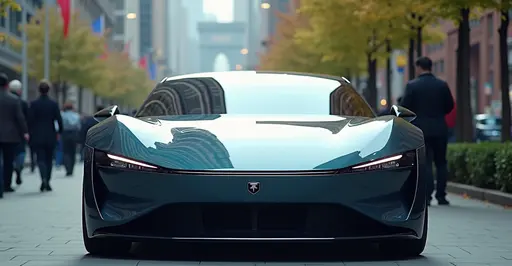
China's Luxury EV Market Accelerates
China's luxury electric vehicle market is experiencing unprecedented growth, with premium automakers competing fiercely for affluent buyers. In 2024, China accounted for 60% of global EV production, with luxury EV sales surging 35% year-over-year to 8.1 million units. This boom is fueled by rising disposable incomes and shifting consumer preferences toward high-tech, eco-friendly vehicles.
Key Players and Strategies
Domestic brands like NIO and XPeng dominate the premium SUV segment, offering "battery-as-a-service" plans and AI-powered features. International manufacturers aren't backing down: Tesla's Shanghai Gigafactory now produces 700,000 vehicles annually, while Volkswagen invested $700 million in XPeng to co-develop mid-size EVs. Stellantis acquired 20% of Leapmotor to accelerate premium EV development.
Price wars have intensified as manufacturers slash costs. Tesla reduced Model Y prices by 30% since 2022, while BYD's luxury Yangwang U8 undercuts European rivals at $150,000. "The battleground has shifted from range anxiety to tech supremacy," notes industry analyst Zhang Wei.
Global Expansion
Chinese luxury EV exports skyrocketed 80% in 2023, with 1.2 million premium EVs shipped worldwide. NIO's expansion into Europe and VinFast's $2 billion North Carolina factory highlight aggressive globalization. Tariff strategies are evolving too: the EU imposed 15% tariffs on Chinese EVs, while the US Inflation Reduction Act incentivizes domestic production.
Future Outlook
With luxury EVs projected to hit 45% of China's total car sales in 2024, automakers face consolidation. Over 300 EV manufacturers operated in China in 2023, but experts predict only 20-30 will survive by 2027. Next-gen solid-state batteries from CATL and BYD promise 800km ranges, potentially redefining premium performance standards by 2026.

 Nederlands
Nederlands English
English Français
Français Deutsch
Deutsch Español
Español Português
Português


